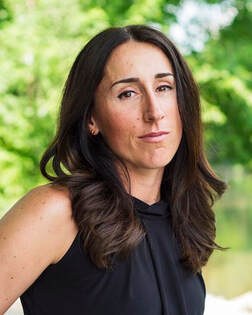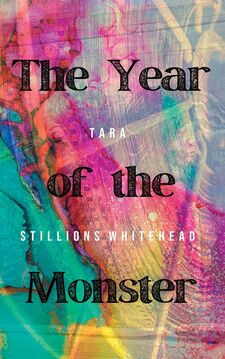Unsolicited Press
 Photo by Dan Williamson Photo by Dan Williamson If you could cook dinner for any author, dead or alive, who would it be? What would you make? I would cook fish tacos with homemade guacamole for Kurt Vonnegut Jr. What scares you the most about the writing process? How do you combat your fears? Writing doesn’t scare me. Not writing does. Short hiatuses, weeks or months, are okay. When I go longer periods without writing as a regular practice, that usually indicates something is out of balance. Sometimes, I fear I’ve lost the ability to focus on writing or get “in the zone” because I’m overworked or feeling mom guilt. I may be feeling that as I write this. Who is your biggest literary crush, author or character? Since I’m already taking Kurt out to dinner, I’ll use this opportunity to discuss my love of Frankenstein’s creature. Could there be a more eloquent, tragic, and culturally misappropriated character in literature? What books are on your nightstand? Right now, there is a can of flat seltzer and a hair scrunchie on my nightstand. Across my room, on the dresser, I have (Unsolicited pressmate) Jackson Bliss’s Counterfactual Love Stories (Noemi Press), Maegan Poland’s What Makes You Think You’re Awake, James Tate Hill’s Blind Man’s Bluff, and Annie Proulx’s Barkskins. Favorite punctuation mark? Why? Em dashes accomplish so much, but I enjoy the full-stop of a period. What book were you supposed to read in high school, but never did? Catcher in the Rye. I got ten pages in and thought, “This writing is so terrible, and this narrator was so whiny.” I think I read a few R.L. Stine books instead. What inanimate object would you thank in your acknowledgements? Coffee. As a sober person who spent many years using alcohol to get into a headspace to write, I appreciate the psychoactive support this beverage has provided me during many 4am writing sessions. If you could write an inspirational quote on the mirrors of aspiring writers, what would you write? Read, read, read...but keep your eyes on your own paper. You can’t write if you spend too much time assessing others’ careers, which have no relation to yours. Does writing energize or exhaust you? Energize. What are common traps for aspiring writers? Fakery. Going for effect. Forcing form without concern for content. Writing without considering the role of form. What is your writing Kryptonite? Exhaustion. And saying, “Yes.” As a full-time film production professor, filmmaker, mom, and friend, it is easy to overwork and let writing practices slip. I have to be selfish with my time and personal resources. Have you ever gotten reader’s block? I am going through it right now! This is my first semester teaching all new preps, all while producing a short film, parenting, promoting the book I released in July, and preparing for a new year of projects. I love the books on my dresser, but they have taken me a long time to get through because I am so exhausted. COVID hasn’t helped. Do you think someone could be a writer if they don’t feel emotions strongly? I don’t know. Are there people who don’t feel emotions strongly? Maybe they can. I used to think that alcohol helped me feel my emotions and facilitate writing, but it actually numbed me to my real feelings. I still wrote a few decent things. Maybe someone can write without feeling emotions strongly, but how good can it be? What other authors are you friends with, and how do they help you become a better writer? I’m an extroverted introvert, so my idea of “friends” might be someone else’s idea of borderline friend/acquaintance. Throwing definitions to the wind here: I consider Barrett Warner, my editor for Blood Histories, a friend. Beyond his generous intelligence and discernment with my book, he and I have had a wonderful epistolary friendship that has kept me sane over the course of the pandemic. He has helped me balance restraint and wildness at the level of language. Katie Farris and Erin Rodini are supportive poet friends I adore and look to for inspiration and courage. Kate Bernheimer, Hannah Grieco, Tommy Dean, and Jo Varnish are editors I’ve worked with but would call friends. Christina Rosso-Schneider, a Philly-based writer who also owns A Novel Idea on Passynuk, has been a really wonderful writer to connect with in-person during the pandemic. She is incredibly supportive of local writers, and I was honored to read at her book launch recently. I’m grateful to the writing community I have on Twitter. They create a space for sharing work, opportunities, and promotion. Do you want each book to stand on its own, or are you trying to build a body of work with connections between each book? That’s a good question. Blood Histories ended up being a concept album, and I do not see much connection to The Year of the Monster. That said, I would love for my body of work to have cohesion but also evolution. How did publishing your first book change your process of writing? What’s interesting is that Unsolicited offered my first contract, but with the 33-month editorial schedule, I ended up publishing Blood Histories through Galileo Press in the interim. Working with Galileo helped me see how I wanted to trim the language in TYOTM. It also allowed me to see how gratifying the collaborative aspects of the publishing process can be. What was the best money you ever spent as a writer? If you mean what was the best way I spent my hard-earned writing money, I would say the Yeti nano microphone I bought with some of the funds I earned from a paid reading with San Diego State University’s MFA program. The second-best would be other writers’ books. I love to support writers, to buy more books than I will ever have time to read. What authors did you dislike at first but grew into? I’m going to get flack for this, but it took me a while to enjoy Poe. What was an early experience where you learned that language had power? When I was nine years old, I wrote to the film magazine, Premiere. I sent them my photo and a short letter telling them that I was starring in the school play. I told them it was my dream to be on the cover of the magazine. They ended up publishing my letter in the Letters to the Editor section, alongside a photo mock-up with my picture and “PREMIERE” splashed across the top–a cover just for me. I realized that a letter, full of hope and passion, could find an audience. What’s your favorite under-appreciated novel? Breakfast of Champions. As a writer, what would you choose as your mascot/avatar/spirit animal? Staryu, from Pokemon. What do you owe the real people upon whom you base your characters? That’s hard to say. I think I use parts of a lot of people to fill in the mannerisms and desires and fears of my characters, but very few are intact fictionalizations. My Hollywood abusers are mostly intact, with very little alterations. I owe them nothing, but I wonder whether I will someday owe the industry their real names. How many unpublished and half-finished books do you have? I have one unpublished chapbook titled They More than Burned that was a top 20 finalist in Black Lawrence Press’s Chapbook Contest this fall and received an honorable mention in The Cupboard Pamphlet’s 2021 Chapbook Contest. I also have a novel, The Law of Inversion, about a failed end-of-times prophecy, a runaway Nobel scientist, and a math teacher harboring many secrets. What does literary success look like to you? Reading my book from start to finish and feeling like I did what I wanted to do. And maybe getting a blurb from Jason Isbell. What’s the best way to market your books? Twitter has been a really handy platform, at least for my first book. We went into the second printing before release day, and most of that was due to Twitter promotion. Local venues are also really important. I plan to have my launch for this book at Midtown Scholar in Harrisburg, which is not only a beautiful space, but also a huge literary venue that has hosted a lot of great readings and book releases. What’s the most difficult thing about writing characters from the opposite sex? Remembering that many men are more indirect in their speech and talk a lot less than I imagine they do. What did you edit out of this book? I pulled a reimagined fairy tale titled “Blood Histories”...which ended up becoming the title work of my chapbook from Galileo. If you didn’t write, what would you do for work? When I’m not writing, I am teaching film production at a small private university. If I could choose what I would do? Honestly, I’m doing it. But my next choice would be forensic pathology. I really love forensic science and enjoy reading about it. ------------------------------------------------------------------------------------------------------------ Tara Stillions Whitehead is a filmmaker and multi-genre writer living in Central Pennsylvania. Graduate of University of Southern California’s School of Cinema-Television Production and San Diego State University’s Creative Writing MFA Program, her writing and films work to subvert the toxic cultural narratives endorsed by popular media and the institutions that profit from stigmatizing and disadvantaging marginalized and historically oppressed groups. Her writing was included in the 2021 Wigleaf Top 50 and has been nominated for various awards, including Best of the Net, Best Small Fictions, AWP Intro Journal Awards, and the Pushcart Prize. A former DGA assistant director for television, she is currently Assistant Professor of Film, Video, and Digital Media Production at Messiah University, where she serves as production faculty for narrative filmmaking. Her hybrid chapbook/concept album, Blood Histories, was published by Galileo Press in 2021.  The Year of the Monster explores American culture as commodity and comorbidity. From black holes and animal extinctions to death row trauma porn and the redacted scripts of Hollywood abuses: these sixteen stories subvert traditional notions of justice, challenge vulnerable characters to survive in transgressive spaces. Mixing traditional prose with screenplay and script-hybrid, and certainly not without hope, The Year of the Monster encourages close examination of how American media and our complicity in its marriage of violence and culture perpetuate the human and environmental crises. Comments are closed.
|
Popular Topics
All
We Support Indie Bookshops |
